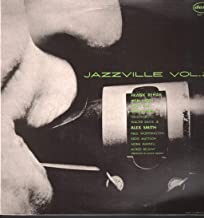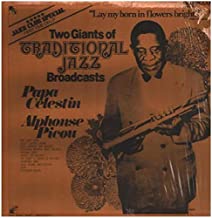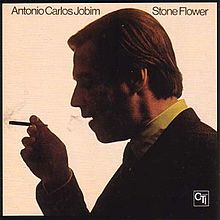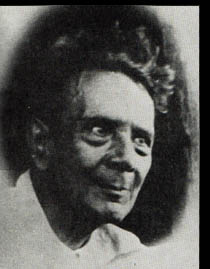
Daily Dose Of Jazz…
Frank Rehak was born July 6, 1926 in New York City and began on piano and cello before switching to trombone. He worked with Gil Evans and Miles Davis. He also appeared with Davis on the broadcast The Sounds of Miles Davis.
A heroin addiction combined with other financial problems led to his withdrawal from music and his lapsing into relative obscurity. It was probably partially contributed to his failed marriage to nightclub dancer Jerri Gray. In an effort to deal with these issues he spent time at Synanon, which led to his mention in Art Pepper’s autobiography.
Trombonist Frank Rehak transitioned in Badger, California on June 22, 1987 of throat cancer at the age of 60.
More Posts: history,instrumental,jazz,music,trombone

Daily Dose Of Jazz…
Ricky Ford was born in Boston, Massachusetts on March 4, 1954 and studied at the New England Conservatory. At the age of twenty he recorded with Gunther Schuller and then played in the Duke Ellington Orchestra under Mercer Ellington from 1974 to 1976.
Moving on to play with Charles Mingus from 1976 to 197777, the Dannie Richmond from ‘78 to ‘81, followed by Lionel Hampton for two years beginning in 1980 and ending up in the Mingus Dynasty. By 1983 Ricky was also played with Abdullah Ibrahim, a relationship that lasted for seven years. By the end of the decade he was also playing with Mal Waldron until 1994.
Ford has recorded twenty~two albums as a leader for Muse, Candid, and other labels. As a sideman he has recorded with but not limited to Yusef Lateef, Sonny Stitt, McCoy Tyner, Freddie Hubbard, Amina Claudine Myers, Sathima Bea Benjamin, Ran Blake, Steve Lacy, Jaki Byard, Red Rodney, Jack Walrath and others.
Tenor saxophonist Ricky Ford settled in Paris, France in the 1990s, has taught at Istanbul Bilgi University from 2001 to 2006, and in 2009 he founded the Toucy Jazz Festival in Yonne, France. He continues his pursuit of his music.
More Posts: bandleader,history,instrumental,jazz,music,saxophone

Daily Dose Of Jazz…
Alphonse Floristan Picou was born on October 19, 1878 in New Orleans, Louisiana into a prosperous middle-class Creole of Color family in downtown NOLA. Taking to music early by 16, he was working as a professional musician on both the guitar and clarinet, concentrating on the latter. To appease his family’s frown on music he trained and worked as a tinsmith, but in demand as a clarinetist, he made most of his living from music.
He played classical music with the Creole section’s Lyre Club Symphony Orchestra and played with various dance bands and brass bands including those of Bouboul Fortunea Augustat, Bouboul Valentin, Oscar DuConge, Manuel Perez, Freddie Keppard, Bunk Johnson, the Excelsior Brass Band, the Olympia Brass Band among others.
Due to his light-skin Picou sometimes worked with white bands as well in his youth. He was one of the early musicians playing in the new style that was developing in the city, not yet known as “jazz”. He sometimes played with Buddy Bolden, perhaps the most important force in the musical change. He was an influence for many of the up and coming younger clarinetists. His subtle variations are usually more melodic embellishments than what would later be called improvisation.
At least once he went north to Chicago, Illinois around 1917 and briefly to New York City in the early 1920s. Not liking life up North, he spent most of his career in his home city, writing tunes for King Oliver that included Alligator Hop and Olympia Rag.
Clarinetist and arranger Alphonse Picou, perhaps best known for originating the clarinet part on the standard High Society, passed away on February 4, 1961 in New Orleans.
More Posts: clarinet,history,instrumental,jazz,music

The Quarantined Jazz Voyager
Stone Flower is the sixth studio album by Antônio Carlos Jobim. Recorded over a period of seven sessions in 1970 on March 16, April 23, 24, 29, and May 8, 20, and 22nd by Rudy Van Gelder at Van Gelder Studio in Englewood Cliffs, New Jersey. The album was produced by Creed Taylor, the album was released on July 7, 1970 on CTI Records. The album peaked at #18 on the Jazz Albums chart in 1971 and #196 on the Billboard 200.
Track Listing | 33:47 All tracks composed by Antônio Carlos Jobim, except where noted- Tereza My Love ~ 4:24
- Children’s Games ~ 3:30
- Choro ~ 2:10
- Brazil (Ary Barroso) ~ 7:25
- Stone Flower ~ 3:21
- Amparo ~ 3:41
- Andorinha ~ 3:32
- God and the Devil in the Land of the Sun ~ 2:23
- Sabiá ~ 3:58
- Antônio Carlos Jobim – piano, electric piano, guitar, vocals
- Harry Lookofsky – violin
- Joe Farrell – soprano saxophone
- Urbie Green – trombone
- Hubert Laws – flute
- Ron Carter – double bass
- João Palma – drums
- Airto Moreira – percussion
- Everaldo Ferreira – percussion
- Eumir Deodato – guitar, arranger
More Posts: adventure,club,genius,guitar,jazz,museum,music,piano,preserving,restaurant,travel,vocal,voyager

Daily Dose Of Jazz…
Emanuel Perez was born on December 28, 1871 in New Orleans, Louisiana into a Creole of Color family of Spanish, French and African descent. At the turn of the century, he became a member of the Onward Brass Band, leading it from 1903 to 1930. The Onward Brass Band was one of the most respected of its day that included King Oliver, Peter Bocage, Henry Kimball, Lorenzo Tio, Luis Tio, George Baquet, Isidore Barbarin, and Benny Williams. The Perez and Oliver two cornet, or “trumpet” team, was one of the most renowned in New Orleans.
Manuel started his own brass band, called the Imperial Orchestra, which operated from 1901 to 1908. A move north to Chicago, Illinois in 1915 saw him playing with Charles Elgar’s Creole Orchestra at the Arsonia Cafe and also with the Arthur Sims Band. Returning to the Crescent City in the Twenties, he played in Storyville, on steamboat excursions with Fate Marable and in parades with the Maple Leaf Orchestra.
Suffering a stroke in 1930, he left music during this period to work with his brother, who owned a moving company, while he ran the used furniture store. Cornetist Manuel Perez, who was a sight-reader and highly technical musician, He would go on to suffer a series of strokes that left him disabled and eventually caused his death in 1946 in New York City.
More Posts: cornet





